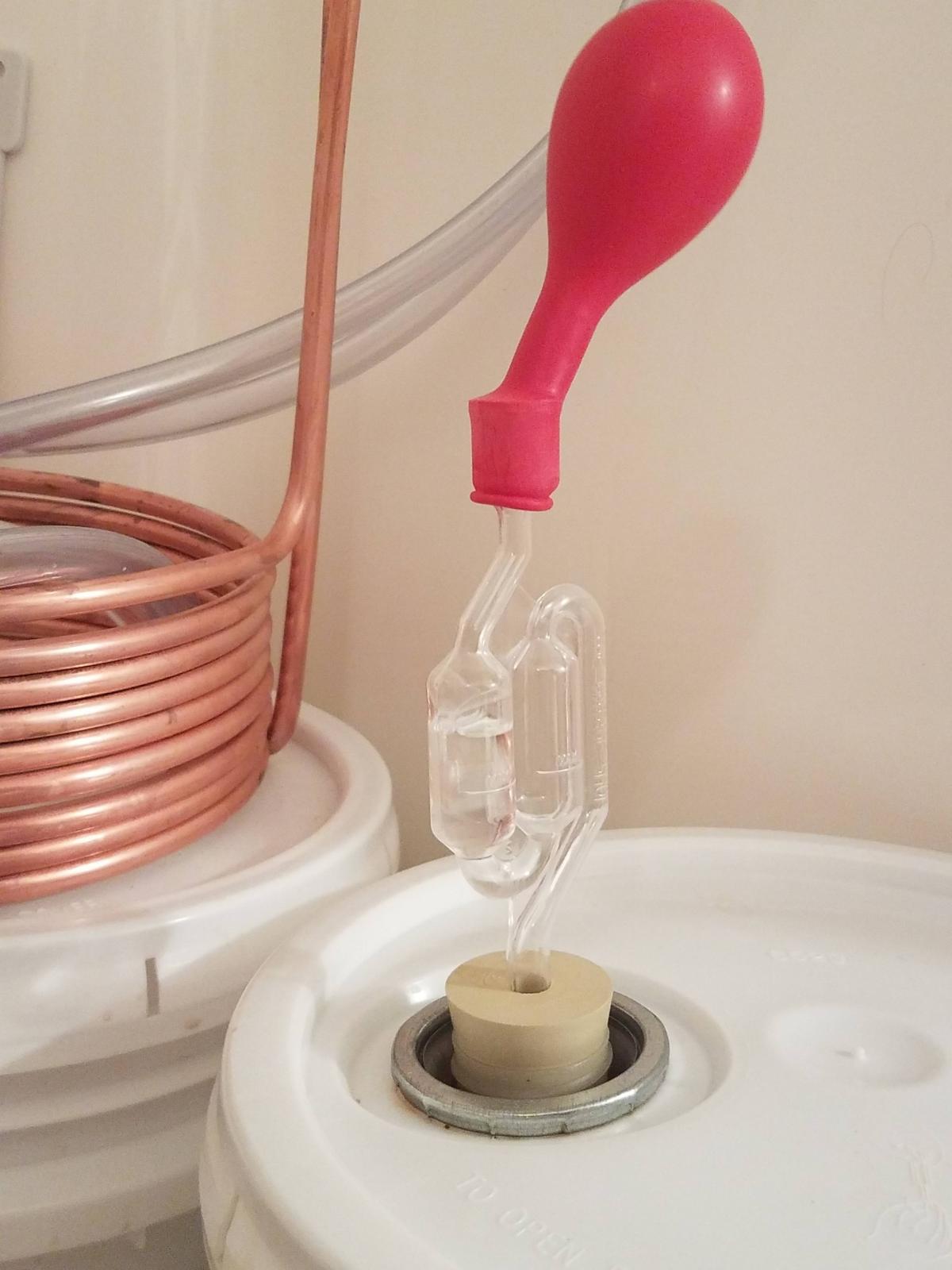So I got into a discussion on Facebook with a supplier who makes pressure-keg style fermentors for homebrewers.
One of their main selling points is that you can turn beers around within 6 days - largely because the carbonation happens as part of primary fermentation. I'm not disputing the benefits of this and there are many - less oxidation, no having to wait for bottle conditioning, less cleanup etc.
But one of the big downsides is that these vessels are expensive and if you have to have them tied up lagering or ageing before you serve then you need several of them. These things are 10x the price of a secondhand corny keg so any sort of lagering/ageing schedule means you need more of them. The time from grain to glass becomes critical when you have expensive gear tied up. A problem I suspect commercial brewers have to deal with much more so than homebrewers.
So I asked how they account for lagering time in respect of a Pilsner or Doppelbock, or ageing time in respect of a RIS or Belgian strong.
The response was that ageing/lagering is a myth and beer is best fresh and the grains start degrading straight away bla bla. They also pointed out that Guinness gets brewed in 5 days, which I'm not disputing, but Guinness is not quite the same thing as a RIS.
Thing is, lagers that I brew, 100% no doubt in my mind taste better after a few months. RIS and bigger styles, plenty of my beers have gone from barely drinkable to very nice over 6+ months. Even the humble pale ale, in my view, continues to improve well after it's fully carbonated.
So what is it about pressure fermenting that eliminates this need to age the beer?
I actually tasted one of their blonde ales and my first thought was that while it was fine it tasted a bit green and a few more weeks wouldn't hurt it - so my gut feeling is that the 6 day turnaround is all marketing propaganda and the pressure-fermenting eliminates the need to wait for carbonation but you still need to allow for flavours to mellow (in styles that require it).
Does anyone actually own a pressure fermentor? I understand that carbonation time is eliminated, but how good to the pilsners / Vienna lagers / doppelbocks and higher gravity styles taste straight out of primary?
I'm not trying to troll these guys, genuinely interested if this process speeds up lager brewing as much as they say it does.
One of their main selling points is that you can turn beers around within 6 days - largely because the carbonation happens as part of primary fermentation. I'm not disputing the benefits of this and there are many - less oxidation, no having to wait for bottle conditioning, less cleanup etc.
But one of the big downsides is that these vessels are expensive and if you have to have them tied up lagering or ageing before you serve then you need several of them. These things are 10x the price of a secondhand corny keg so any sort of lagering/ageing schedule means you need more of them. The time from grain to glass becomes critical when you have expensive gear tied up. A problem I suspect commercial brewers have to deal with much more so than homebrewers.
So I asked how they account for lagering time in respect of a Pilsner or Doppelbock, or ageing time in respect of a RIS or Belgian strong.
The response was that ageing/lagering is a myth and beer is best fresh and the grains start degrading straight away bla bla. They also pointed out that Guinness gets brewed in 5 days, which I'm not disputing, but Guinness is not quite the same thing as a RIS.
Thing is, lagers that I brew, 100% no doubt in my mind taste better after a few months. RIS and bigger styles, plenty of my beers have gone from barely drinkable to very nice over 6+ months. Even the humble pale ale, in my view, continues to improve well after it's fully carbonated.
So what is it about pressure fermenting that eliminates this need to age the beer?
I actually tasted one of their blonde ales and my first thought was that while it was fine it tasted a bit green and a few more weeks wouldn't hurt it - so my gut feeling is that the 6 day turnaround is all marketing propaganda and the pressure-fermenting eliminates the need to wait for carbonation but you still need to allow for flavours to mellow (in styles that require it).
Does anyone actually own a pressure fermentor? I understand that carbonation time is eliminated, but how good to the pilsners / Vienna lagers / doppelbocks and higher gravity styles taste straight out of primary?
I'm not trying to troll these guys, genuinely interested if this process speeds up lager brewing as much as they say it does.



